Scottish election 2021: How has Covid affected Scotland's remote economies?
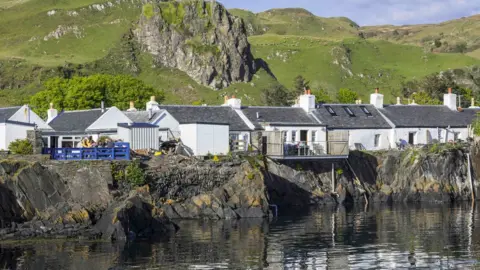 Getty Images
Getty ImagesIn the run-up to the Scottish election on 6 May, The Nine's chief news correspondent James Cook is meeting people from around Scotland to discuss the big issues. With restrictions on travel within Scotland on the verge of being eased, he visits the Isle of Seil, south-west of Oban, to discover what impact the pandemic has had on the area's economy.
The sky blazes blue and the Atlantic Ocean shimmers in the sunshine.
It is a glorious day here on the Isle of Seil - tourist heaven - and yet in the village of Ellenabeich the boats are pulled up, the pub is dusty and dark, and the islanders are waiting.
Tony Hill and his wife Jess own six boats here and on a day like this they would usually be taking tourists to see whales, seals, puffins and the great whirlpool in the Gulf of Corryvreckan.
Instead, for months now, the pandemic has kept them onshore.
"The past year has been very difficult," says Tony.
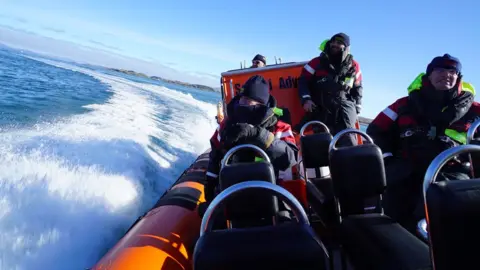
Their company, Seafari Adventures, made no money in 2020, he explains, because there were far fewer visitors than normal.
Even when the lockdown was lifted in the summer they ran only two boats, with two-metre social distancing rules cutting capacity and profits even further.
Now, says operations manager and skipper Carolyn Perkins, they're desperate to reopen and they believe they can do so safely with masks, sanitiser and plenty of wild fresh air.
It would be ridiculous, argues Carolyn, if even the one-metre distancing restrictions for public transport - which now apply to these boats - are still in force when rugby and other outdoor contact sports for adults are resuming on 17 May.
"We're looking for a level playing field," she says.
Tony, who is from Wales originally, approves of the metaphor.
His entire crew actually live just across the water from Seil on the even smaller Easdale Island where, says Tony, a fifth of the working-age population rely on the firm for their income.
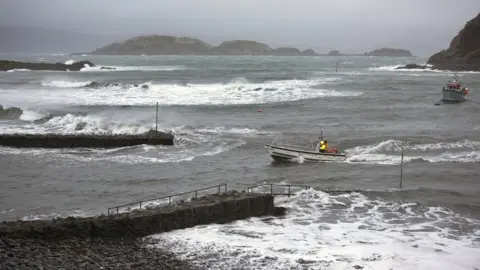 Getty Images
Getty Images"If we were to lose our employees and the people who work with us, they would move into the cities and they would never come back," he adds.
It's not a city but the nearest big settlement is Oban, around 30 minutes away by car via the famous 'Bridge over the Atlantic', a single arched bridge which has connected Seil and the mainland since 1793.
'I'm not interested in the politics'
In the town we meet Kim Forteith, who used to work in a hotel above Oban Bay, with a lovely view, long hours and a longer list of responsibilities.
When the pandemic struck and the doors closed, Kim left hospitality altogether and is now working as a cleaner with shorter shifts and better pay.
She is worried about opening up again too quickly.
"We just need to get over Covid," says Kim. "I'm not interested in the politics at the moment.
"Probably everybody else is wanting to get going, and that's very understandable, but we don't want to go backwards again."

SCOTLAND'S ELECTION: THE BASICS
What's happening? On 6 May, people across Scotland will vote to elect 129 Members of the Scottish Parliament (MSPs). The party that wins the most seats will form the government. Find out more here.
What powers do they have? MSPs pass laws on aspects of life in Scotland such as health, education and transport - and have some powers over tax and welfare benefits.
Who can vote? Anyone who lives in Scotland, is registered to vote and aged 16 or over on 6 May is eligible. You can register to vote online.

For now Oban's restaurants, bars and many tourist shops remain closed except for some takeaways.
Karen Lindsay, who owns an off-licence called The Oban Beer Seller, is in theory able to trade, as alcohol sales are deemed essential. But for most of the year there just wasn't enough custom in the town for her to do so.
With unfortunate timing, she opened the business for the first time on 20 March last year, and closed the doors just one day later as the country faced its first lockdown.
"When I think back, I actually feel a bit sick and quite emotional about it all," she recalls. "It was a horrible time."
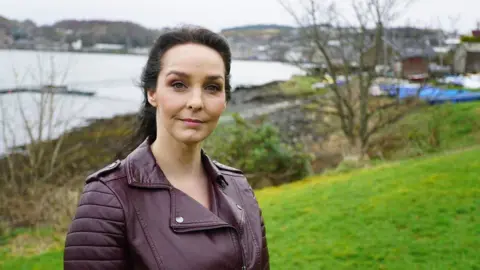
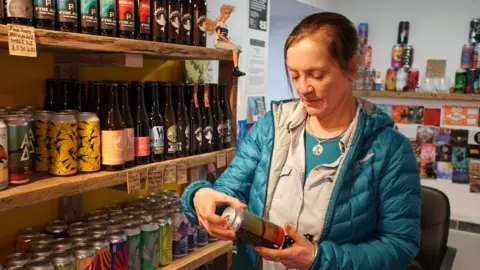
Nonetheless Karen thinks the Scottish government did the right thing by locking down the country with the aim of stopping or slowing the spread of Covid-19 to save lives.
She says she's still prepared to take her lead from Edinburgh on when it is safe to reopen but adds: "We've all had a rest over the winter. We're ready for the visitors. We're raring to go."
'The town is devastated'
Karen and Kim both reckon the Oban economy will bounce back quickly when the tourists return but Paul Sloan is not so sure.
He owns Cuan Mor (Big Ocean in Gaelic) on the seafront, along with several other restaurants and hospitality businesses as managing director of Diversity Leisure Group and director of Glasgow's Topolabamba restaurant group.
Paul estimates his losses in the past year at more than a million pounds and says he has lost "an enormous chunk" of the business which took decades to build. He has already cut jobs, permanently closing some premises.
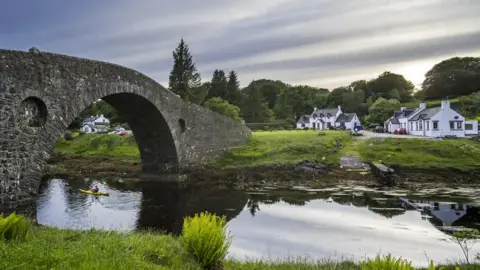 Getty Images
Getty ImagesHe praises the furlough scheme introduced by the UK government which has paid up to 80% of the salary of millions of workers for hours lost through coronavirus restrictions and which has now been extended until 30 September.
Paul is far less impressed with the Scottish government's handling of the economy during the pandemic and his forecast for Oban is bleak.
"The town is devastated," he says. "'To let' signs are starting to go up everywhere. We've lost some of our major brands...and we're left with big sites that really will be hard for anybody to fill."
Paul's business partner Callum MacLeod, director of Oban's North Pier restaurants, agrees.
He is unhappy with the continued restrictions which keep his restaurants closed, criticising what he calls the hypocrisy of allowing construction workers "to descend upon Oban" and shoppers to fill supermarkets while keeping tourists away.
"I was ready last year to open safely. I'm ready again to open safely," he says.
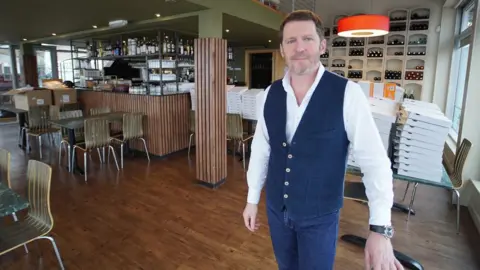
Callum also questions why the successful rollout of vaccines has not led to more optimistic talk from Scottish ministers and their advisers.
There is optimism he says "but [it] is tempered."
Paul has a similar take: "I'm an overflowing glass human being, but right now I'm feeling happy to have a glass at all," he says.
He reckons this year will be as difficult as last for many firms to survive, the damage to Oban may take four years or more to repair, and the end of furlough will bring a reckoning for which, Paul argues, politicians are not prepared.
"The unemployment level will reach a figure that we have not seen in decades," he predicts.
And so our politicians are still facing extraordinary questions which have become commonplace: How many lives can lockdowns save? How much damage do they cause? What should open up, when, and how?
It's a debate which has divided the country for much of the past year, a choice, perhaps, between the devil and the deep blue sea.


Do you have a question about the Scottish Parliament election? Use the form below to send us your questions and we could be in touch.
In some cases your question will be published, displaying your name, and location as you provide it, unless you state otherwise. Your contact details will never be published. Please ensure you have read the terms and conditions.
If you are reading this page on the BBC News app, you will need to visit the mobile version of the BBC website to submit your question on this topic.

